Veterinary & Biosecurity
The Black Soldier Fly Insect Larvae Enterprise for COVID-19 Livelihood Resilience Project Launched at CoVAB
Published
2 years agoon

The College of Veterinary Medicine, Animal Resources and Biosecurity (CoVAB) in Collaboration with Michigan State University has embarked on upscaling the use of the Black Soldier Fly Larvae as a source of insect protein for animal production.
An awareness session was convened at the college on Monday 20th February 2023, attended by stakeholders that included the academia, entomology extension staff from peri-urban districts, officials from the Ministry of Agriculture, Animal Industry and Fisheries (MAAIF) and the Centre for Insect Research and Development (CIRD).

The Black Soldier Fly larvae is known to be one of the most environmentally friendly sources of insect protein that is highly nutritious and cheap to rear making it a possible replacement of expensive animal protein based feed ingredients like mukene or silver fish.
During the project launch, it was explained that Black Soldier Fly Larvae farming was growing rapidly despite some challenges that include issues of safety and quality of the larvae produced from different farms, the nutritional content as well as the mixing ratios with other feed ingredients.
Dr. Amulen Deborah and Dr. Patrick Vudriko the respective Principal and Co -Investigators are working together with Prof. Eric Benbow and Dr. Jennifer Pechal from Michigan State University in implementing the USAID funded project namely; Scaling cost effective, safe and quality Black Soldier fly insect larvae enterprise for COVID-19 Livelihood resilience in Uganda. The project comes in to address some of the identified challenges in the Black Soldier Fly enterprise.
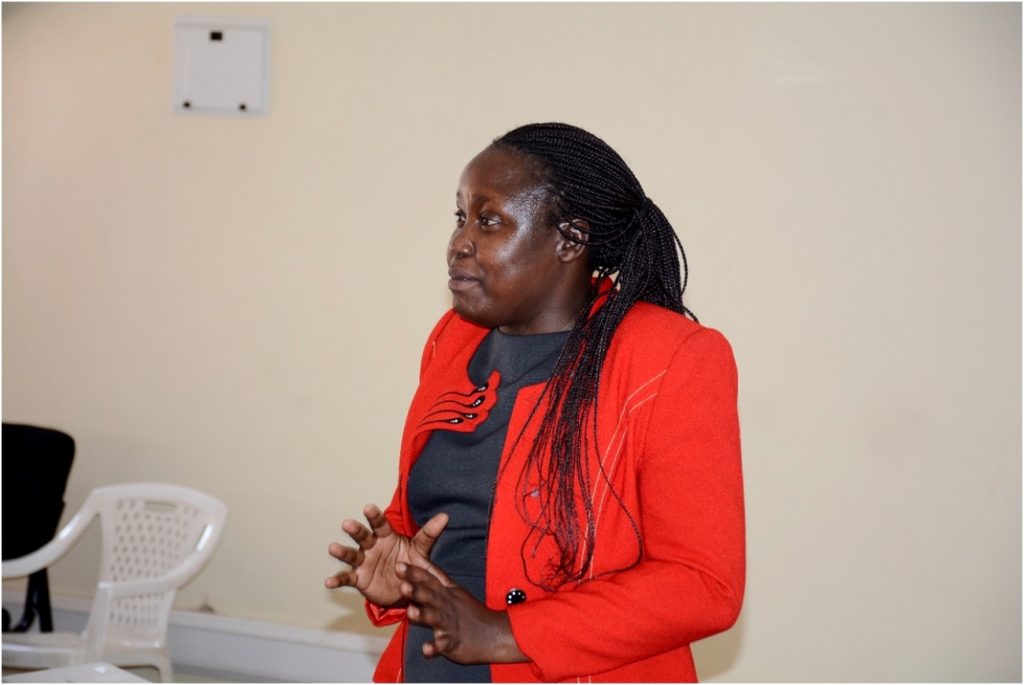
According to Dr. Amulen Deborah, the key outputs of the project include a Policy brief on the use of Black Soldier fly larvae in livestock value chains which will guide the policy formulation processes by the planners. She said the one-year project that is supporting a Masters’ Student on Veterinary Medicine will also come out with one formula for BSFL based diet for broiler chicken.
Dr. Amulen explained that in line with the Universities community outreach policy, the project will support training of 100 youth and women in BSFL startups and for sustainability purposes support the Centre for Insect Research and Development (CIRD) as a one stop knowledge center. In addition to strengthening the collaboration between Makerere and Michigan State University, Dr. Amulen explained that another output will be a scientific research paper within the scope of the objectives of the project.

The project isintended to assess the impact of COVID-19 on livestock feed protein source to map out actors in the BSFL value chains in Peri-Urban Kampala and to assess the quality and safety of BSF larvae reared. It is also intended to build the capacity of women and youth in small scale commercial BSFL farming in the Districts of Mpigi, Wakiso, Mukono Entebbe and Luweero.
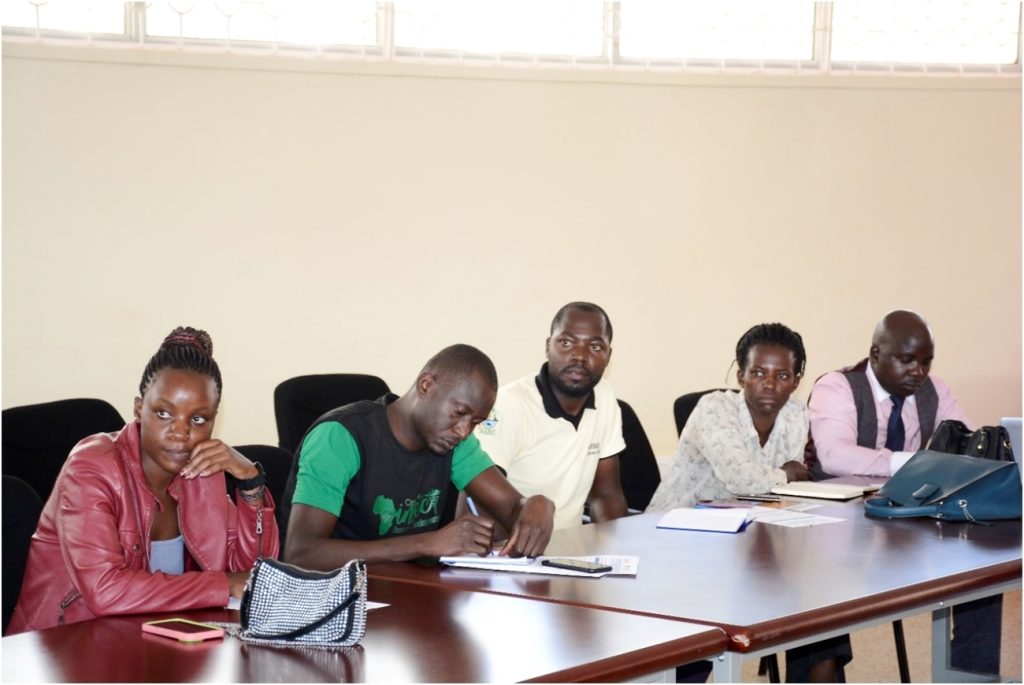
The collaborating Institutions include Makerere University, Michigan State University and the Centre for Insect research and Development (CIRD), which has since 2019 piloted small-scale commercial BSFL farming under the leadership of the Principal Investigator on this project, Dr. Amulen. The major milestones achieved by CIRD in the pilot phase include setting up a small-scale BSFL unit producing one ton of BSFL weekly, supporting establishment of 100 BSF farming business, establishing market channels for both BSF equipment and breeding seeds such as eggs and pupae, as well as creating demand for dry BSFL among poultry and animal farmers.
In the course of implementing the project, entomologists from selected Districts will support the identification of farmers willing to start BSF farming and serve as focal point persons in the baseline study. The other planned activities include three field questionnaire surveys, seven training workshops for commercial BSL farming to be conducted at CIRD, Laboratory analysis of BSFL for nutritional content and safety, feeding experimentation and determining the performance of Black Soldier Fly Larvae-based feed in broiler chicken as well as a dissemination workshop.
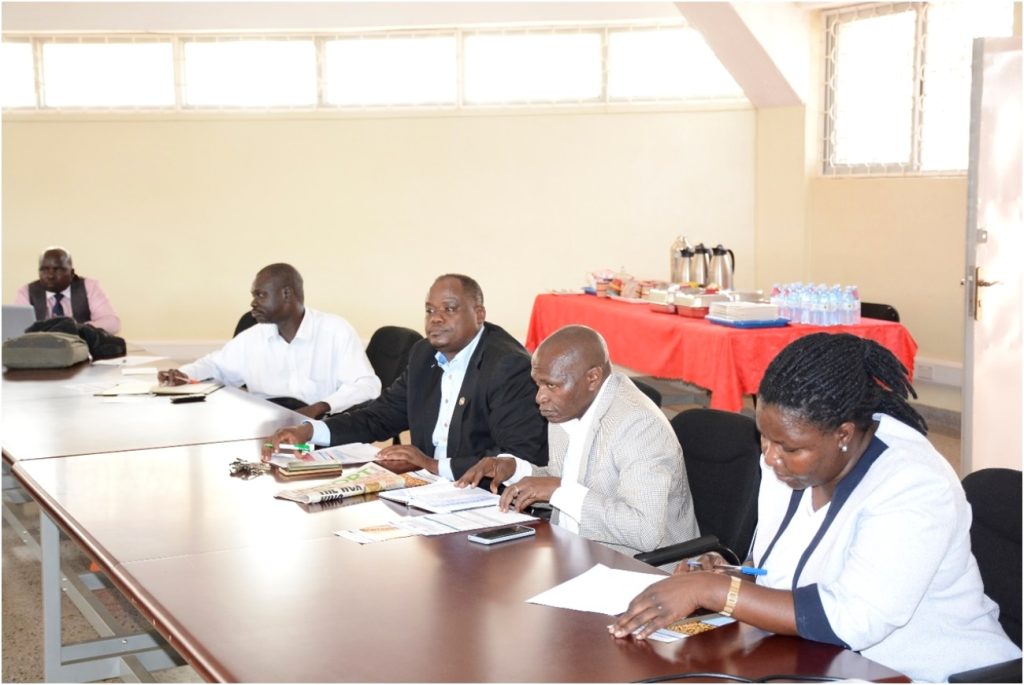
Dr. Vudriko Patrick the Co-PI while giving his reflections on the BSFL enterprise pointed out the need to seriously consider sustainability and the economics of the enterprise, the alternative wastes and their supply chain management as well as the legal framework for the enterprise, in addition to the National technical capacity for BSF development at Ministry and Local Government levels as institutions mandated to undertake training.
Dr. Vudricko emphasized the need for education as a vehicle for knowledge expansion and human resource technical competence, noting that our education system lacks the technical competence, citing the limited content for BSFL training at the College of Veterinary Medicine, Animal Resources and Biosecurity (CoVAB), The College of Natural Sciences (CONAS) and the College of Agricultural and Environmental Sciences (CAES).
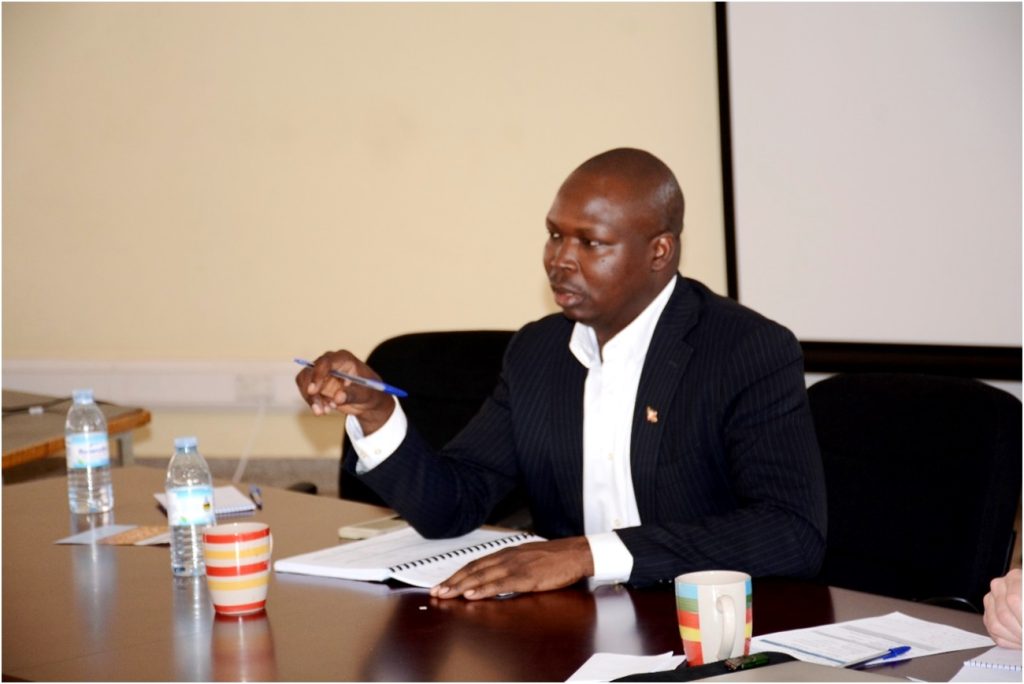
He further emphasized the need for a product diversification as part of a holistic value chain development, product diversification, zero waste, not only looking at the larvae but considering maximizing revenue from all products. Other areas to focus he proposed, concerned product certification, determining who to call a breeder, and what it takes for one to qualify as one.
The Ministry of Agriculture, Animal Industry and Fisheries was in attendance to address issues concerning establishing whether the relevant, laws and regulations were in place, as a condition for providing an enabling environment and ensuring the right standards in order to have the desired quality of products. MAAIF was also to give guidance regarding the existing technical capacity of the ministry and offer direction.
While officiating at the closing of the engagement, the Commissioner for Entomology in the Ministry of Agriculture Animal Resources and Fisheries Mr. Lawrence Tusiime Muhangi noted that the Black Soldier Fly was a relatively new venture. ‘Apart from using the basic principles of entomology, we are all here to learn and the National Livestock Development Policy is the starting point for us all. Most of our participation is in bee keeping and my wish would be to advocate for skilling students at university’, said the Commissioner, affirming that the standards were not in place. He said the Ministry was aligning the Animal Disease Management Bill and that given the fact that the Black Soldier Fly was a biological organism, there was need for a training manual and standards to create a fair condition for all stakeholders, including development economists, the academic, the farmers and extension workers to participate.

He commended CoVAB for initiating the project and emphasized the need for the Ministry to consider other areas of entomology including the Black Soldier Fly since it was steadily getting onboard as a viable enterprise. ‘We need to check where we are in different areas of entomology. Communities are looking at entomologists to get solutions to the many challenges they face and the ministry needs to come in and support’, he said.
He encouraged Makerere University through the key departments responsible for basic entomology to carry out a campaign to ensure that the needed infrastructure is put in place, cognizant of the fact that there were few staff entomologists at the ministry. ‘Use friends, colleagues and contemporaries to push this agenda forward. I look at this as a salvation. These things are known in a small way but we need to think beyond what the entomologist can say’ he said while emphasizing the need for the academia to support to the Ministry on instituting the necessary polices and guidelines.
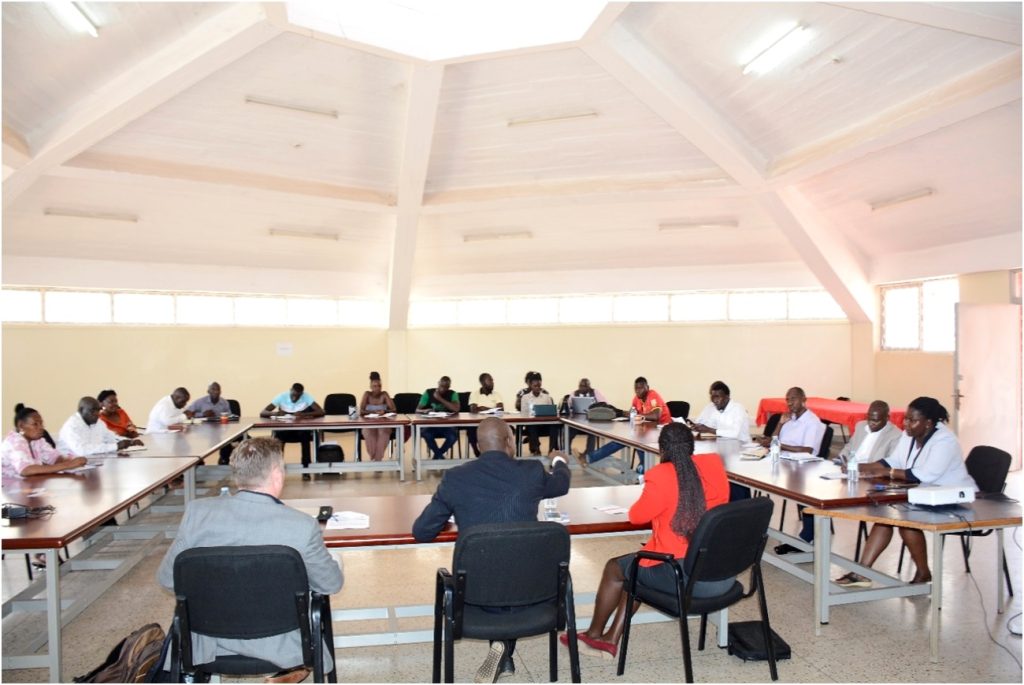
The commissioner encouraged the entomologists to ensure that there were demonstrations at the Districts and where they were not, have them started at their respective homes, and that with more orientation, more knowledge was to be gained in the management of the Black Soldier Fly enterprises.
In this project, the BSF value chain actors will be coordinated by the private sector (the Center for Insect Research and Development, CIRD) and regulated by the Department of Entomology, Ministry of Agriculture, Animal industry, and Fisheries.
You may like
-


Simplicity, Service & Scholarship: Hallmarks of Professor Livingstone Luboobi’s Legacy
-


EfD-Mak Holds 2nd Advisory Board Meeting: Charts Path for Growth
-


Strengthening Grants Management Through Institutional Collaboration and Capacity Building
-
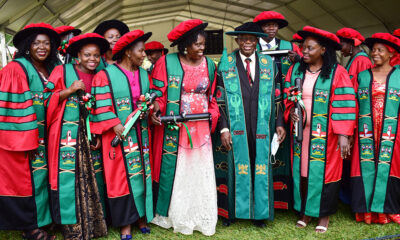

Advert: Postgraduate Admissions 2025/26
-
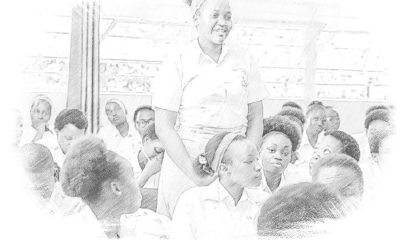

Ugandan Study Flags Girls and Senior Students as a Mental Health High-Risk Group
-
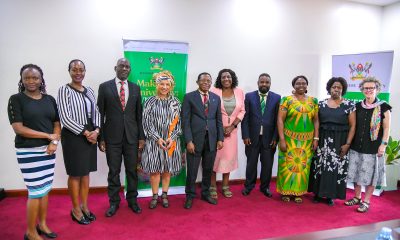

Mak, HERS-EA Discuss Nurturing More Women Leaders
Veterinary & Biosecurity
CoVAB Annual Report 2024
Published
3 weeks agoon
June 30, 2025By
Mak Editor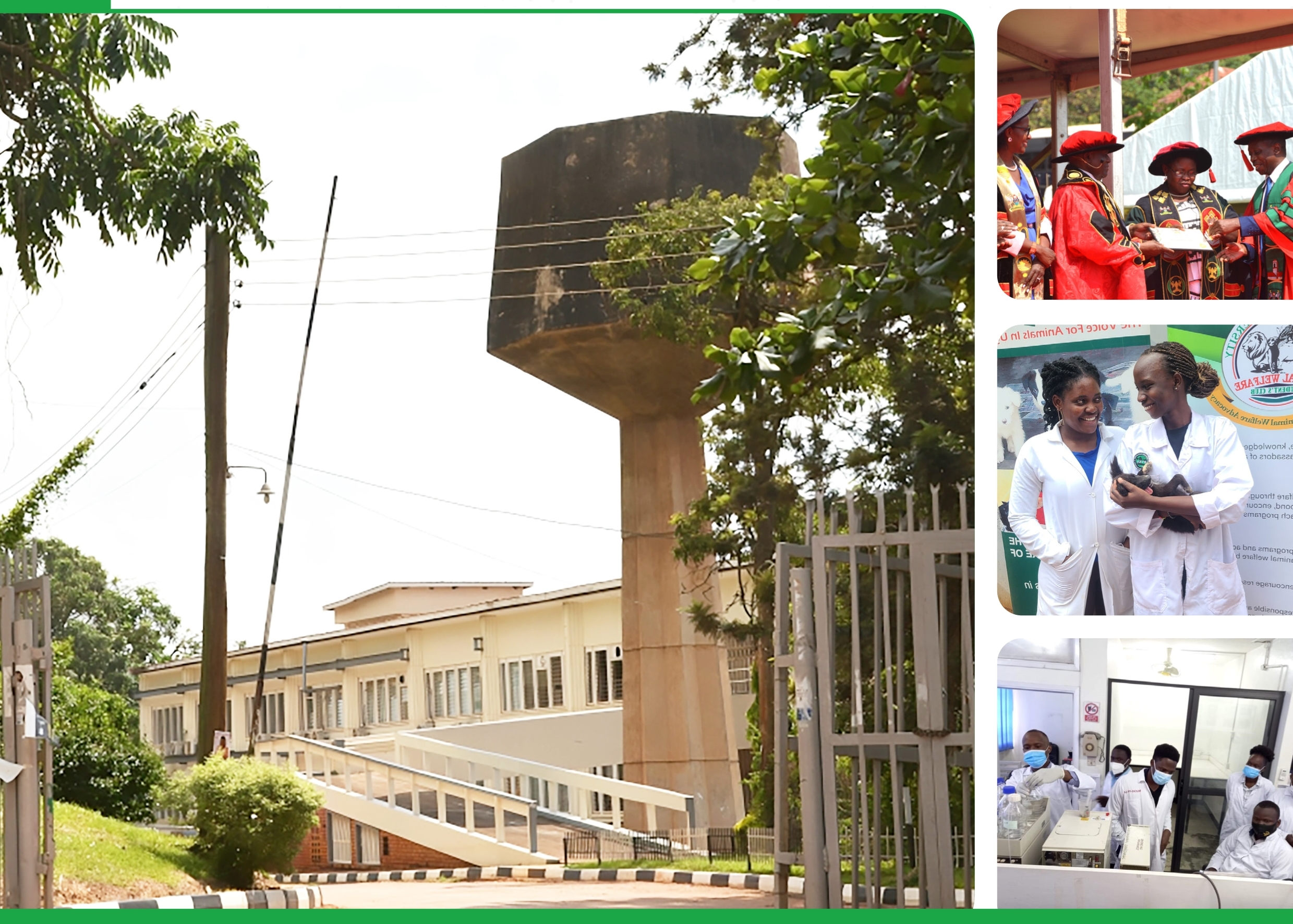
It is my pleasure to share the Annual Report for the year 2024, highlighting the various milestones realized in the College of Veterinary Medicine, Animal Resources, and Biosecurity. First and foremost, I wish to congratulate all of us for the dedication and effort rendered in the running of the college during the period. This collective commitment enabled us to excel in several areas, in line with the mandate of the college and Makerere University at large.
Our mandate teaching and learning, research and innovation, as well as knowledge transfer and partnerships, has been diligently pursued through the concerted efforts of all stakeholders, students, teaching staff, administrative teams, and valued partners. The college takes pride in the contributions made by our partners, who continue to support us in fulfilling this mandate. We particularly appreciate Norbrook (U) Ltd, which has consistently recognized the best-performing veterinary students with cash prizes annually since 2021.
Among the key achievements in 2024 was the expansion of research facilities at CoVAB. The college successfully established new, state-of-the-art laboratories, including an advanced Biomarker Discovery and Translation Research Laboratory, which continues to lead in developing point-of-care diagnostic kits for infectious and noncommunicable diseases, including cancer. The Biomarker Discovery and Translation Research Laboratory at CoVAB represents a significant leap in biomedical research and innovation. This state-of-the-art facility is dedicated to identifying and translating biomarkers into point-of-care diagnostic kits for both infectious and non-communicable diseases, including cancer. In this regard, CoVAB is poised to make tremendous contributions and impacts in advanced diagnostic development through rapid, accessible, and cost-effective diagnostic tools that can be used in both human and veterinary medicine, thereby contributing to improving early disease detection and treatment outcomes.
In the area of interdisciplinary research, the laboratory fosters collaboration among veterinary scientists, medical researchers, and biotechnologists, ensuring a holistic approach to disease management. Given the increasing prevalence of zoonotic diseases, the lab plays a crucial role in bridging veterinary and human health research, contributing to global health security and supporting One Health initiatives. Other achievements at the college are visible in groundbreaking research projects, with several initiatives launched, including studies on zoonotic disease prevention, vaccine development, and drug action mechanisms.
In the area of community outreach, the college expanded its livestock health programs, providing veterinary services to rural communities and enhancing disease surveillance. This is coupled with the increased international Collaborations where CoVAB strengthened partnerships with global institutions, securing funding for One Health initiatives aimed at tackling emerging health challenges.
These advancements and more not mentioned strategically position CoVAB and Makerere University as key players in addressing major animal and human health challenges, particularly zoonotic diseases, which constitute a significant proportion of emerging and reemerging infectious diseases.
The achievements highlighted in this report would not have been possible without the unwavering support, dedication, and collaboration of various stakeholders. We extend our heartfelt gratitude to our students, who are the backbone of our academic community, and whose commitment to learning, research, and innovation continues to propel CoVAB to greater heights. The dedication of our lecturers, researchers, and administrators has been instrumental in driving the college’s mandate forward. Your passion for education, mentorship, and scientific discovery is deeply appreciated. The partners and collaborators, including institutions, organizations, and industry stakeholders such as Norbrook (U) Ltd, have supported our initiatives and strengthened our capacity through funding, knowledge exchange, and collaborative projects. Your contributions are invaluable.
Together, these contributions have made 2024 a truly remarkable year for CoVAB. As we move forward, we remain committed to strengthening these partnerships and building on our shared successes. Thank you for being part of our journey. As we move forward, we anticipate an even more successful period ahead, and together, we shall achieve all that we set out to do.
Prof. Frank Norbert Mwiine
PRINCIPAL
Research
Mak and MSU Host Landmark Symposium on Insects for Food, Feed, and Food Security in Africa
Published
1 month agoon
June 10, 2025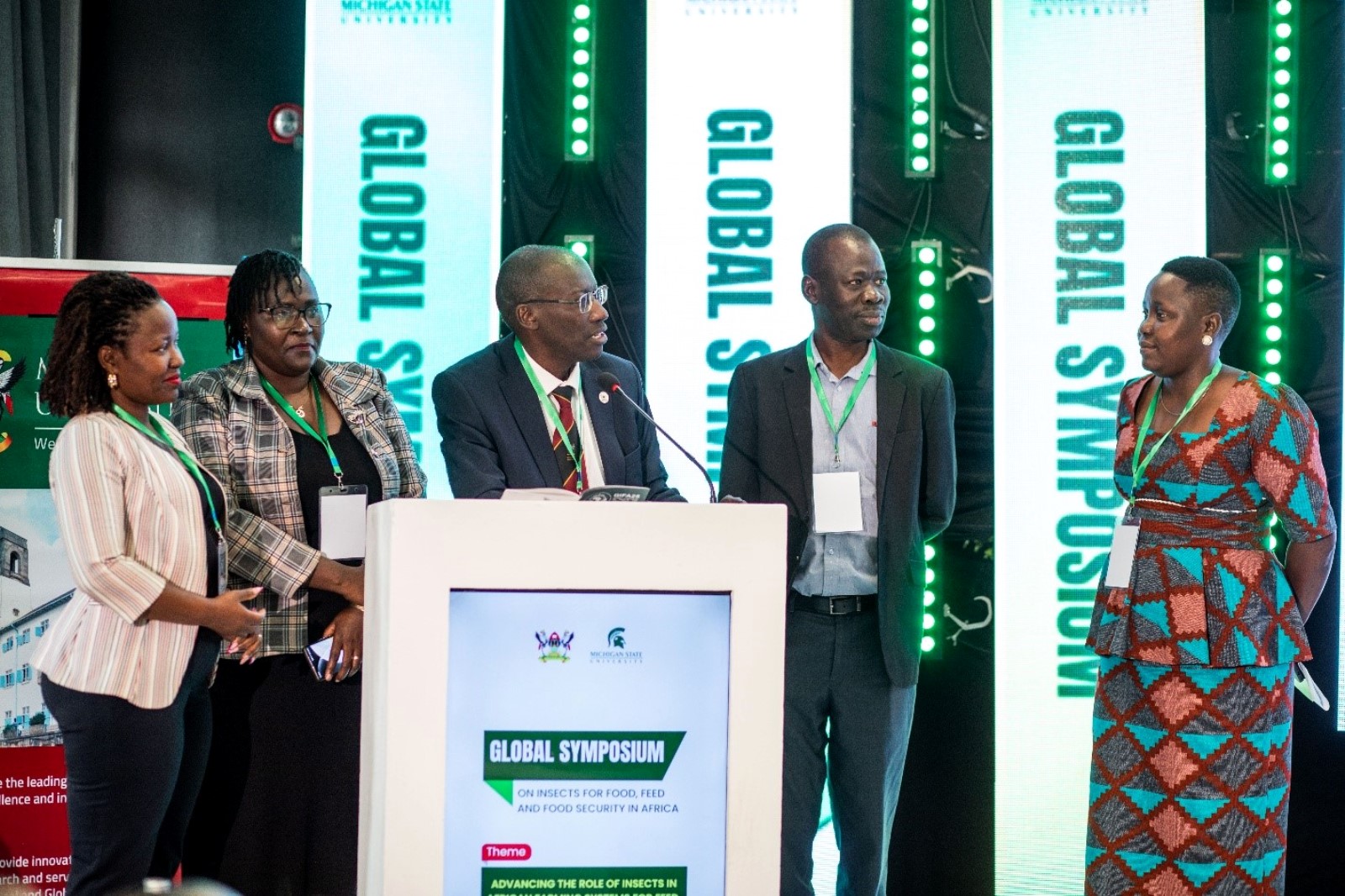
A groundbreaking symposium exploring the role of insects in African farming systems concluded on June 6th, 2025, at Onomo Hotel in Kampala. Convened by Makerere University’s College of Veterinary Medicine, Animal Resources and Biosecurity (CoVAB) in collaboration with Michigan State University (MSU), the event drew participants from over ten countries, including researchers, development experts, regulators, and practitioners.
Under the theme “Advancing the Role of Insects in African Farming Systems for Feed, Food, and Food Security,” the two-day gathering aimed to share knowledge and experiences on integrating insects into food and feed systems to address food security challenges across the continent. The discussions revolved around four key sub-themes namely; Insects as animal feed to promote sustainable livestock production and livelihoods; Insects for human food and food security, including indigenous insect-based diets; Insects for improved soil health and crop production and Commercialization of insect farming, with a focus on regulation and standardization.
The symposium commenced with opening remarks delivered on behalf of Makerere University’s Vice Chancellor, Prof. Barnabas Nawangwe, by his representative, Prof. Frank Norbert Mwiine, Principal of CoVAB. He welcomed participants and commended Dr. Deborah Amulen, Lecturer at CoVAB and chief convener, for organizing a well thought out event. He emphasized that the symposium would not only raise awareness of the role of insects in Uganda’s and Africa’s socio-economic development but also help place insects on the agenda for broader discussions and integration into food security strategies. He said the event served as a platform for knowledge exchange, highlighting the untapped potential of insect farming in transforming food security, sustainable agriculture, and economic growth.
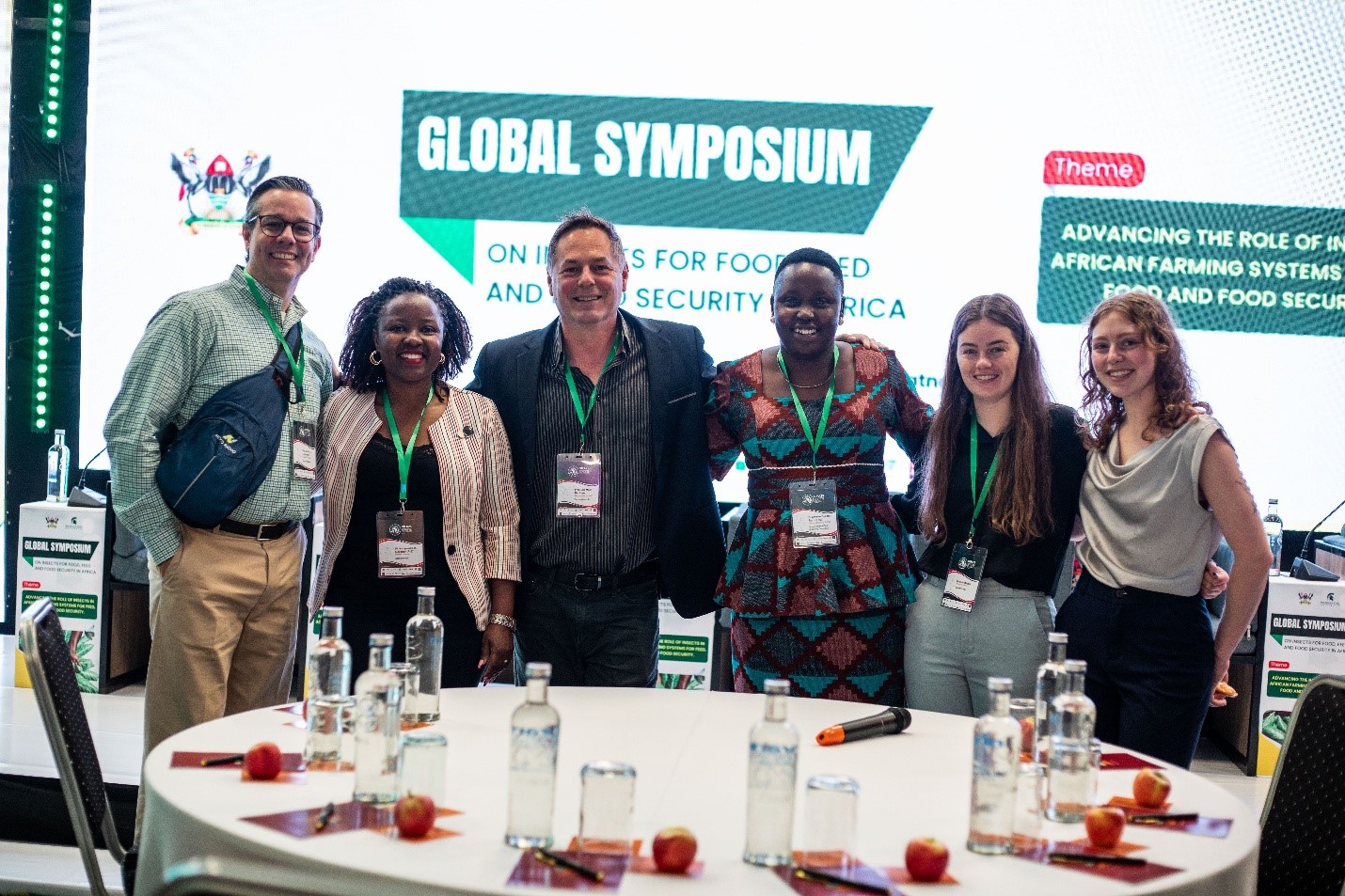
Key facilitators at the symposium were esteemed experts from leading institutions worldwide, who shared their insights on insect-based food systems and sustainable agriculture. Among the distinguished speakers were Prof. Jeffrey K. Tomberlin from Texas A&M University, Prof. Eric M. Benbow from Michigan State University, Prof. Florence Dunkel from Montana State University, Dr. Denise Beesigamukama, a Postdoctoral Fellow, ICIPE Kenya and Dr. Deborah Amulen the host from Makerere University. These are exemplified in their contribution towards academic research and leadership, policy and industry impact and more importantly their expertise in insect science.
During the deliberations, the experts emphasized that insects offer a viable, sustainable, and nutrient-rich solution to Africa’s growing food demands. The event underscored ongoing research and commercialization efforts aimed at mainstreaming insect farming into the agricultural sector. As global interest in alternative protein sources continues to rise, the symposium marked a significant step toward harnessing the potential of insects to enhance food security in Africa.
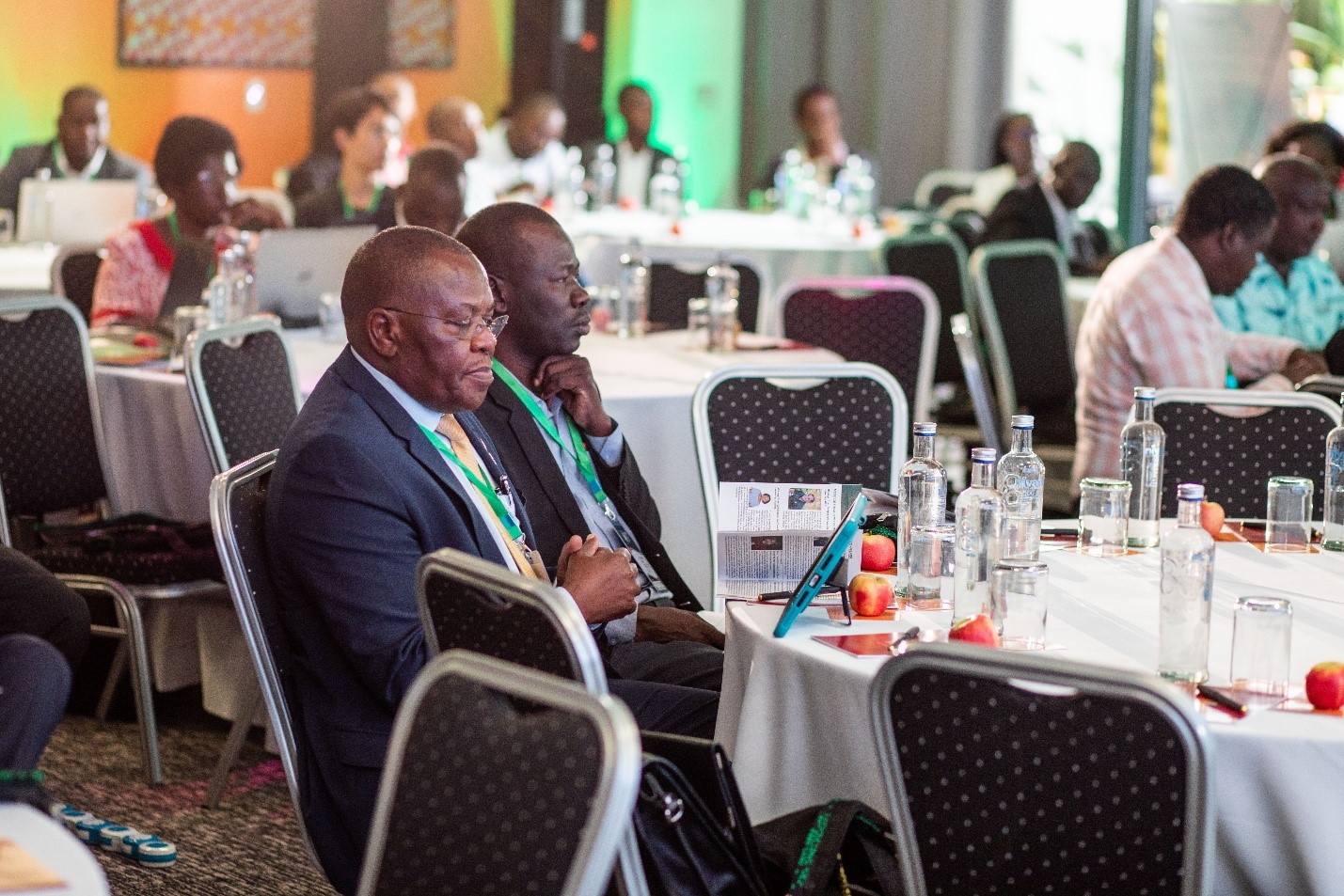
Experts underscored that Africa is home to over 470 recognized edible insect species, providing a rich source of proteins, fats, and essential micronutrients. Insects have historically been a staple in diets across Uganda, Southern Africa, and other regions, serving as a vital food source in times of drought, conflict, and food scarcity. One of the most discussed innovations at the event was the large-scale farming of Black Soldier Fly, which is being utilized to produce not only the larvae but also frass, a high-protein animal feed and organic fertilizer to enhance soil health and boost agricultural yields.
Several scholars presented their research in the area of Insects, where together with the farmers, industry representatives, policy makers and practitioners contributed valuable perspectives on advancing the role of insects in food security, animal feed, and ecological sustainability in Africa. Their discussions underscored the importance of research, policy, and commercialization in expanding insect farming across the continent.
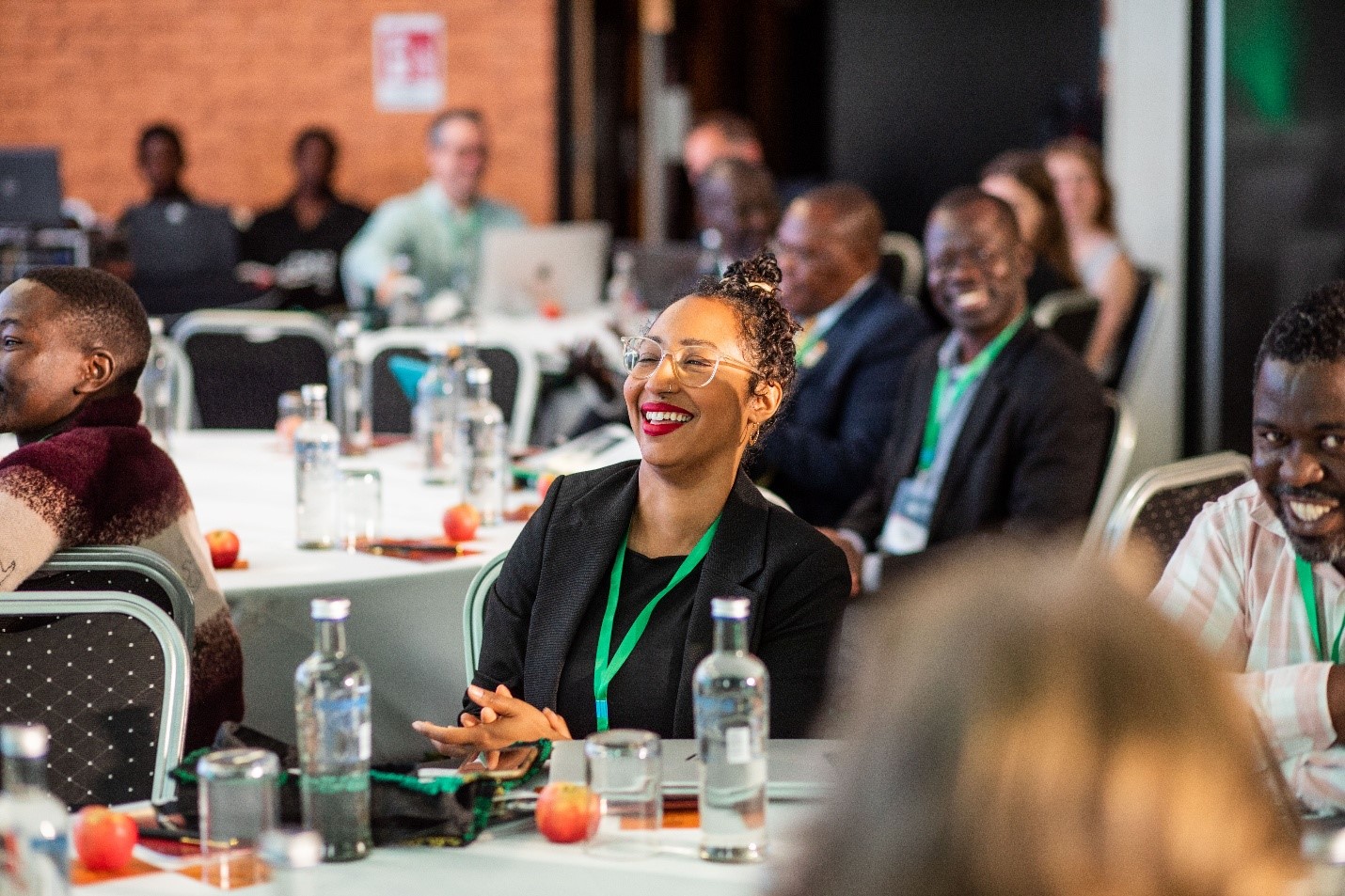
One of the keynote discussions highlighted Uganda’s rich tradition of consuming insects as part of its food culture, reinforcing their significance in nutrition and sustainability. Participants shared insights on local insect consumption practices and their role in livelihoods, drawing from countries like Cameroon, Malawi and many others represented at the event. The forum also featured representatives from key institutions, including the National Council for Science and Technology and The National Agricultural Research Organization (NARO) which contributed perspectives on research, policy development, and commercialization of insects as sustainable food sources, the Ministry for Agriculture, Animal Industry, and Fisheries (MAAIF), emphasizing the Ugandan government’s support for insect farming initiatives.
The Kenya based scientific research institute, the International Centre of Insect Physiology and Ecology (ICIPE) played a key role in the discourse and exhibited several innovations arising from research and their work in insects. Experts explored how insects can revolutionize animal feed production, providing an affordable, high-protein alternative to conventional sources.
With global attention shifting toward alternative and sustainable food sources, experts stressed the need for policy standardization and enhanced investment in insect-based food systems across Africa. During the event, MAAIF announced a $325 million investment through a six-year Smart Agriculture Transformation Project, aimed at expanding sustainable farming practices, reducing environmental impact, and increasing food security through alternative protein sources.
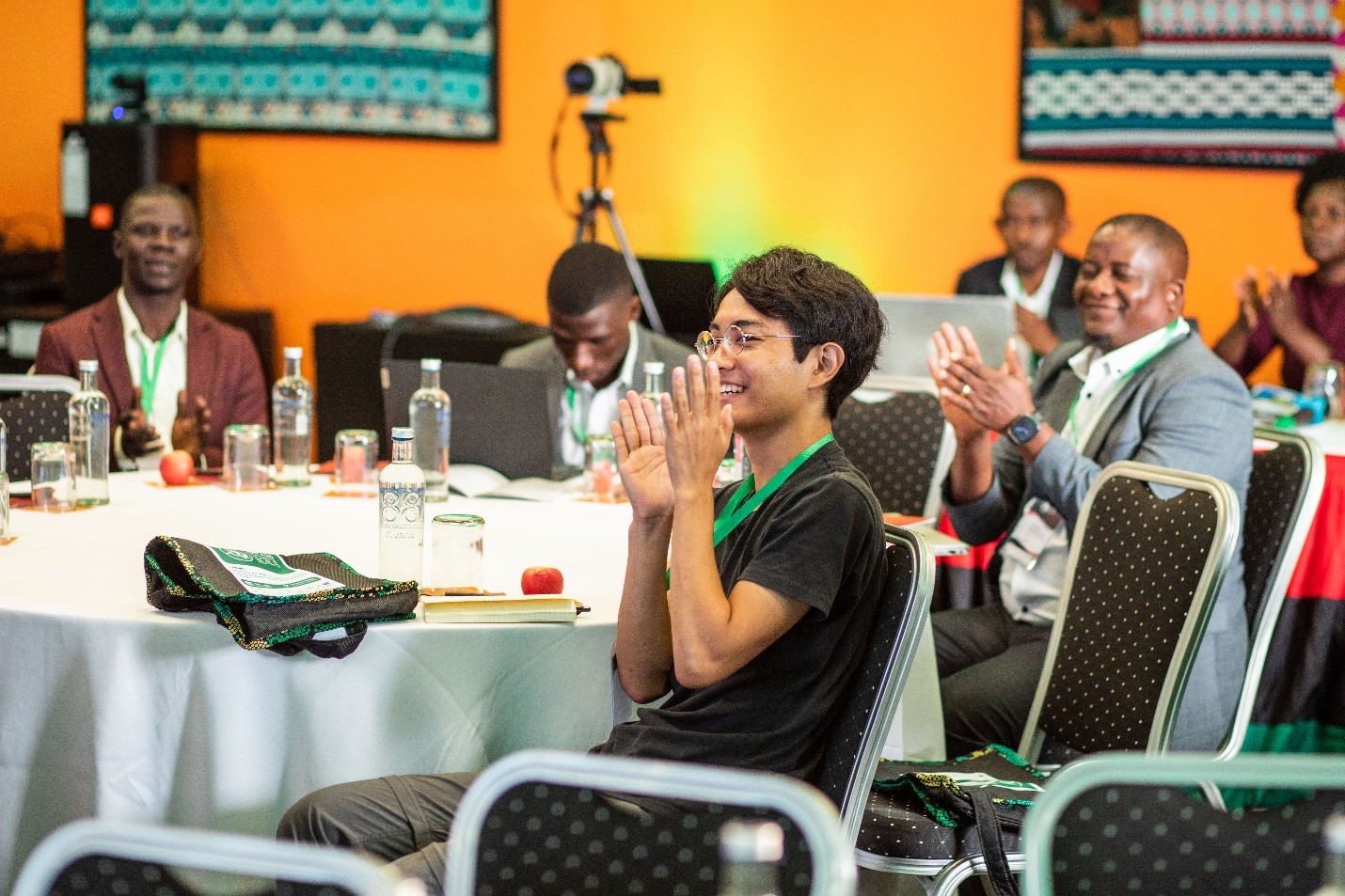
The symposium reaffirmed Africa’s position at the forefront of insect farming research, with discussions centered on scaling production, improving regulation, and leveraging indigenous knowledge for food security solutions. Moving forward, participants emphasized the importance of quality control, standardization, and policy frameworks to ensure safety, scale production, and boost market competitiveness. With Uganda leading discussions on alternative protein sources, the symposium laid the foundation for future innovations in agriculture.
Veterinary & Biosecurity
Makerere Receives Scientific Equipment worth over UGX 1.4 Billion
Published
1 month agoon
June 10, 2025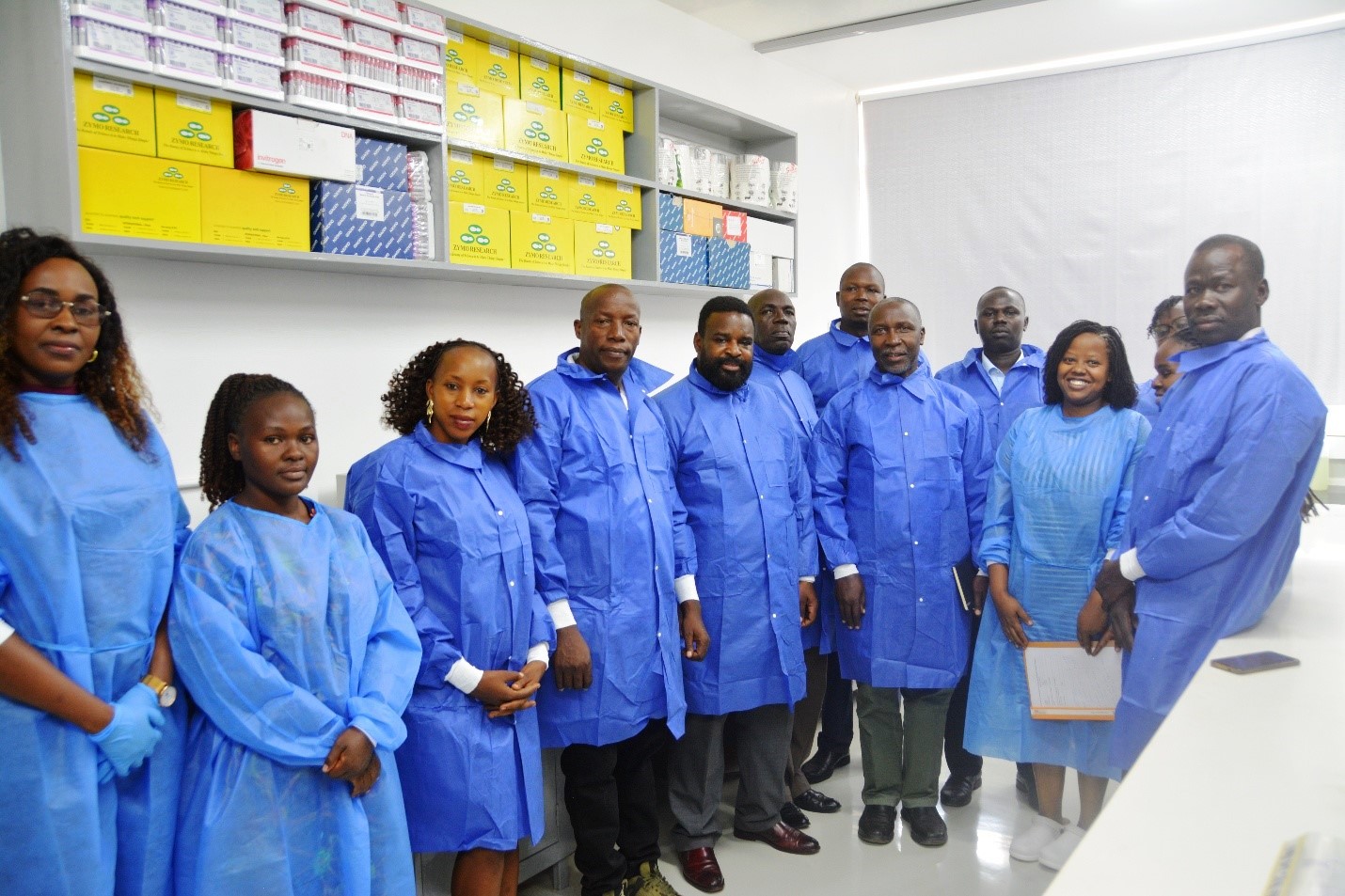
Makerere University has secured a valuable donation of scientific laboratory equipment worth USD 400,000 (Shs. 1.4 billion) through the Seeding Labs’ Instrumental Access Program. This equipment will significantly enhance teaching, research, and diagnostic services at the College of Veterinary Medicine, Animal Resources and Biosecurity (CoVAB).
Following the announcement of a successful application in May 2024, Makerere joins a global network of 137 institutions across 39 countries, gaining access to advanced tools that will elevate STEM education and innovation. This development strengthens the university’s commitment to scientific excellence and fosters collaboration in veterinary medicine and related fields.
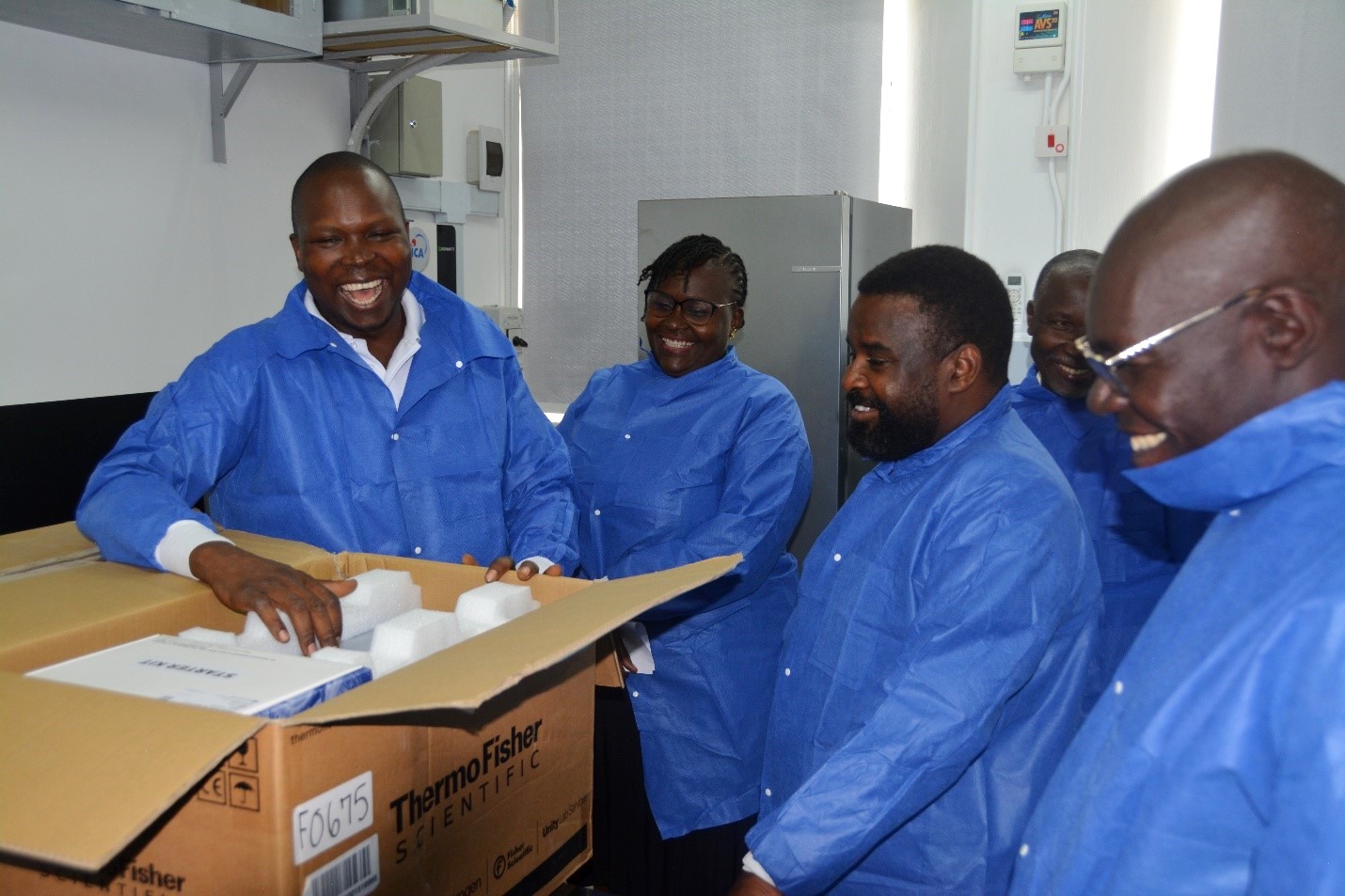
The consignment was received at the College of Veterinary Medicine, Animal Resources and Biosecurity and witnessed by Prof. Edward Wamala, who represented the Vice Chancellor, Prof. Barnabas Nawangwe. In his remarks, Prof. Wamala described the newly acquired scientific equipment as a significant milestone in Makerere University‘s pursuit of academic excellence, innovation, and impactful research. He emphasized its transformative role in strengthening research infrastructure, advancing ongoing scientific inquiry, and empowering both students and faculty to engage in high-impact studies.
Expressing appreciation to Seeding Labs’ Instrumental Access Program for their partnership, he underscored that this contribution was more than a donation, rather an investment in the future of Uganda and Africa at large. He highlighted that the support reflects confidence in Makerere’s students and scientists, recognizing their responsibility to address pressing global challenges in animal health, biosecurity, and public health.
Prof. Wamala further noted that the College of Veterinary Medicine, Animal Resources, and Biosecurity plays a vital role in addressing issues at the intersection of human, animal, and environmental health which is the core of the One Health approach that is emphasized today. With the newly acquired equipment, the college’s capacity will be greatly enhanced, improving diagnostic capabilities, supporting the livestock industry, and contributing to disease surveillance efforts at both local and national levels, he noted.
The Deputy Principal CoVAB, Assoc. Prof. James Okwee-Acai said the equipment received is a significant milestone in the college in its efforts to strengthen science and research capacity. He commended the management of Makerere University for the contribution and support that enabled the shipment and clearance of the consignment. While commenting about the equipment contained in the donation, Prof. Acai said many of items were state-of-the-art and would definitely boost the work of teaching and learning at the college across the two schools.
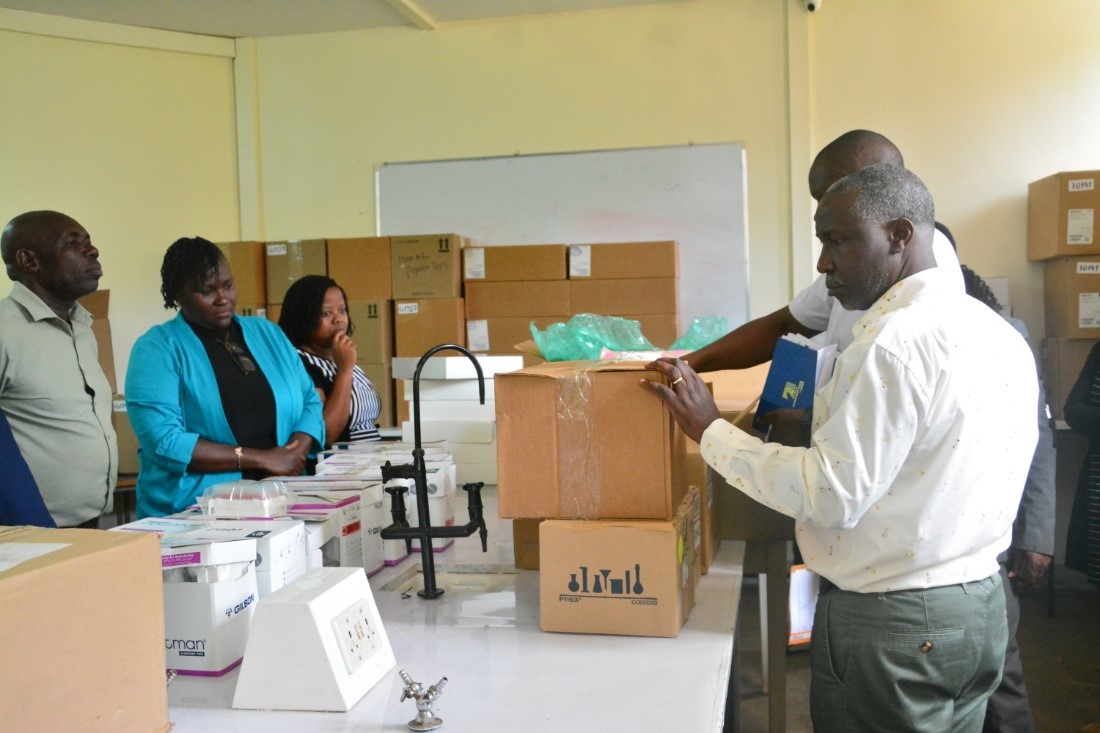
The equipment is expected to greatly enhance the University’s ability to conduct cutting-edge research and provide high quality education in the veterinary sciences. This donation showcases the growing partnerships and collaborations that Makerere University is building to drive innovation and academic excellence. With this valuable addition to its research infrastructure, Makerere University is poised to make even greater strides in advancing scientific knowledge and addressing critical challenges in the veterinary field and looks forward to the transformative impact it will have from training students on the latest analytical techniques to enabling faculty led studies that advance veterinary medicine.
The donors, the Instrumental Access is the flagship program of Seeding Labs, which is a US-based NGO with a mission to increase access to resources for science in developing countries. CoVAB’s participation in Instrumental Access makes Makerere University a member of the community of 137 Instrumental Access awardees in 39 countries worldwide.
The Department of Veterinary Pharmacy, Clinical and Comparative Medicine, Makerere University was chosen for the Instrumental Access award after a rigorous and competitive selection process that receives and evaluates applications from institutions around the world. To be considered, applicants outlined the ways that an infusion of scientific equipment would remove barriers to STEM education and research at their institution, paving the way for new avenues of scientific inquiry and expanding hands-on opportunities for students.
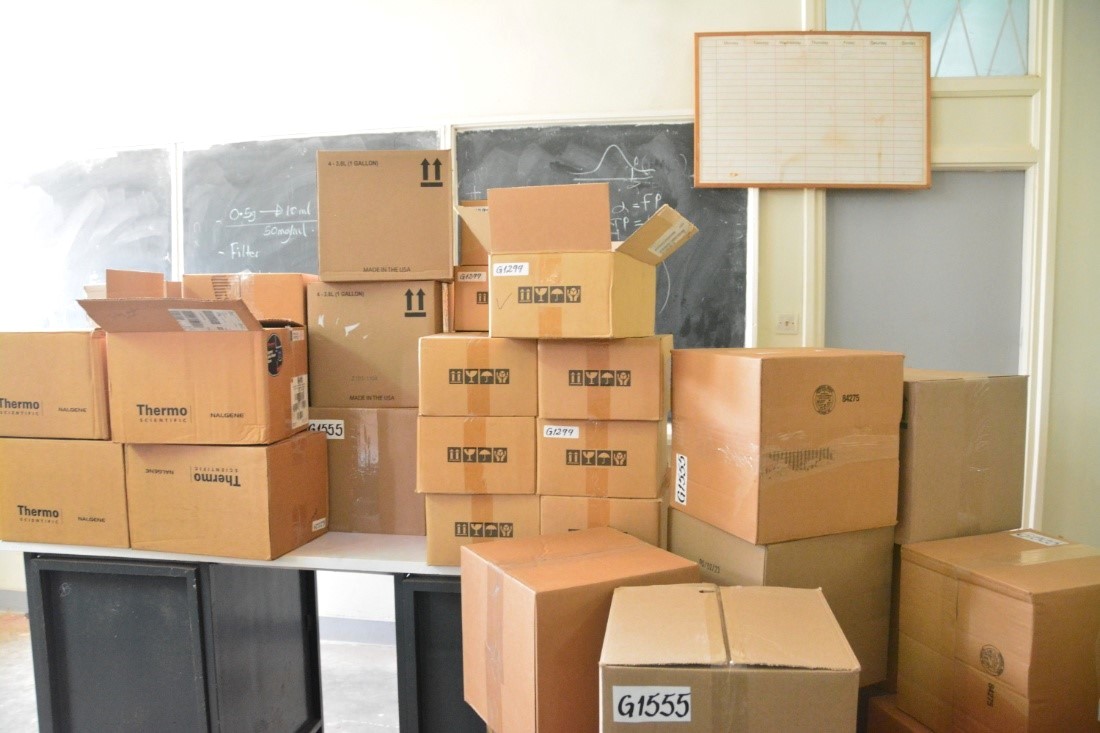
The equipment will provide a foundation for other critical resources that allow scientists to generate new knowledge, leverage sustainable funding, and better prepare university students for the scientific workforce and innovation economy.
More photos from the unveiling
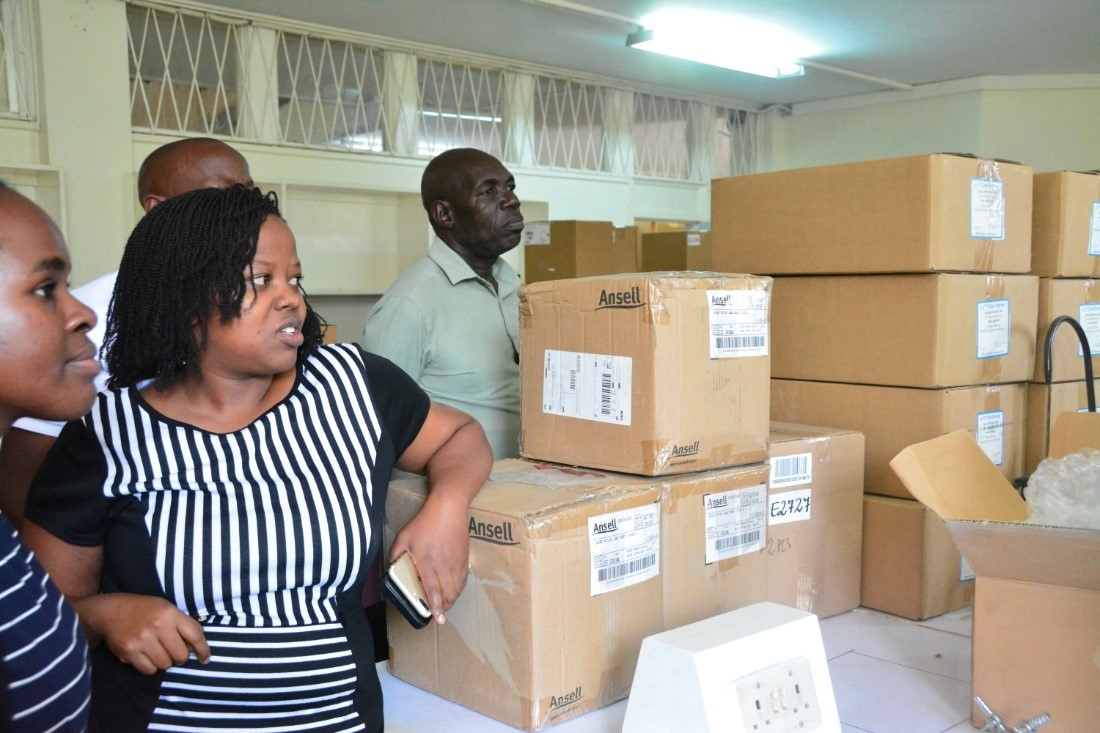
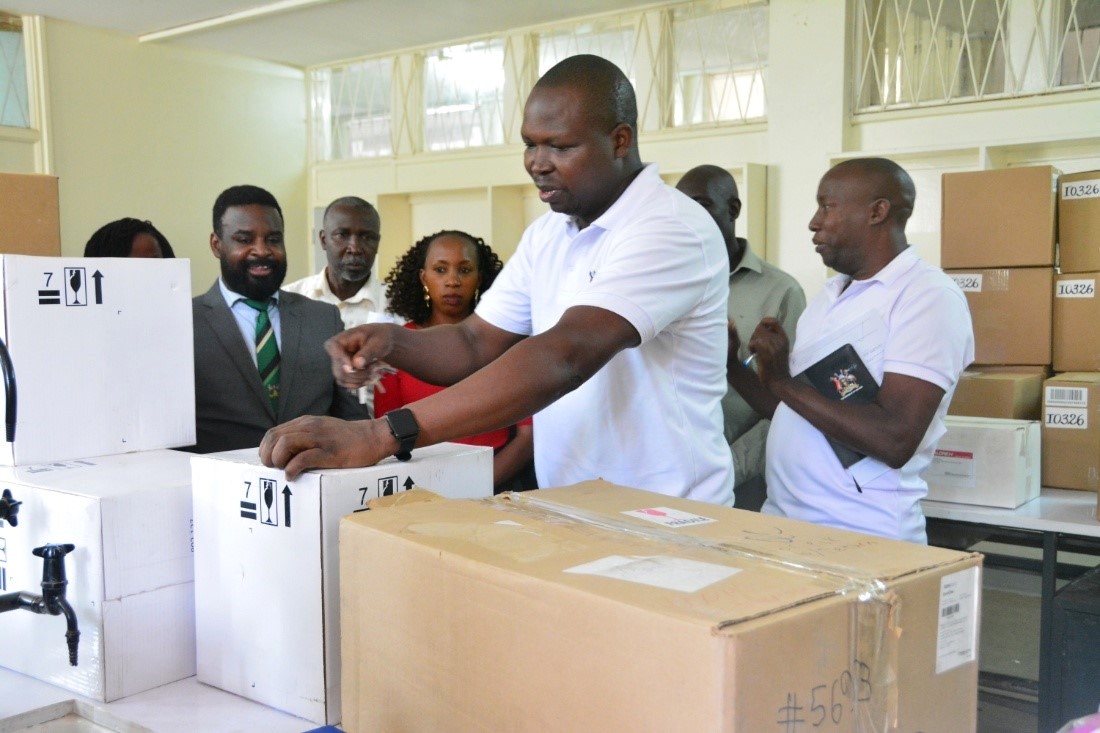
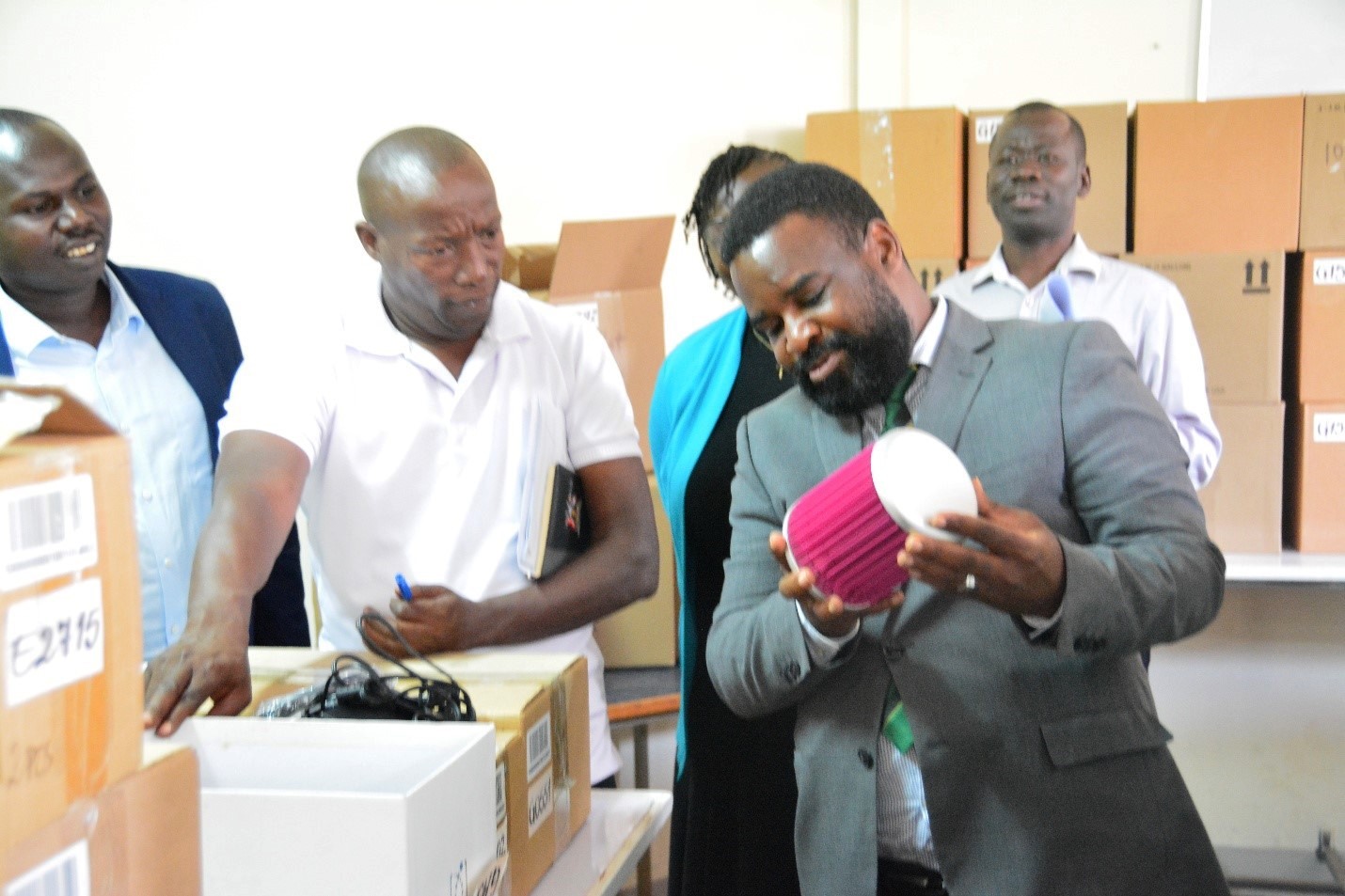
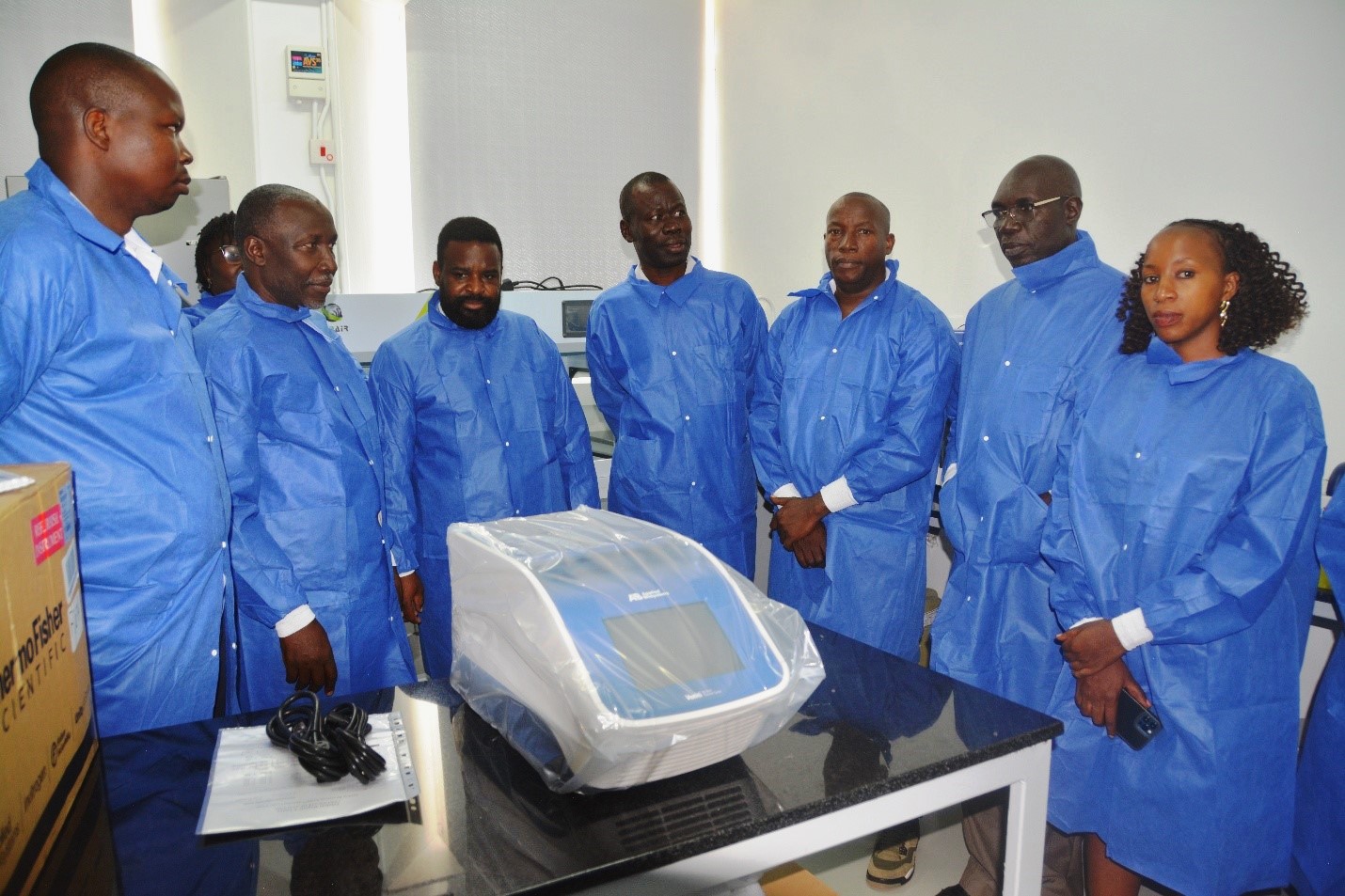
Trending
-

 General2 weeks ago
General2 weeks agoRe-advert: Admission to Undergraduate Programmes 2025/2026
-

 General1 week ago
General1 week agoRe-Advert for Applications for Diploma and Certificate Training
-

 General5 days ago
General5 days agoMakerere University Fees Waiver for 40 First Year Female Students 2025/2026
-

 General2 weeks ago
General2 weeks agoPress Statement on Ranking
-

 Health1 week ago
Health1 week agoCall for Applications: Responsible Conduct of Research (RCR) Training Course
